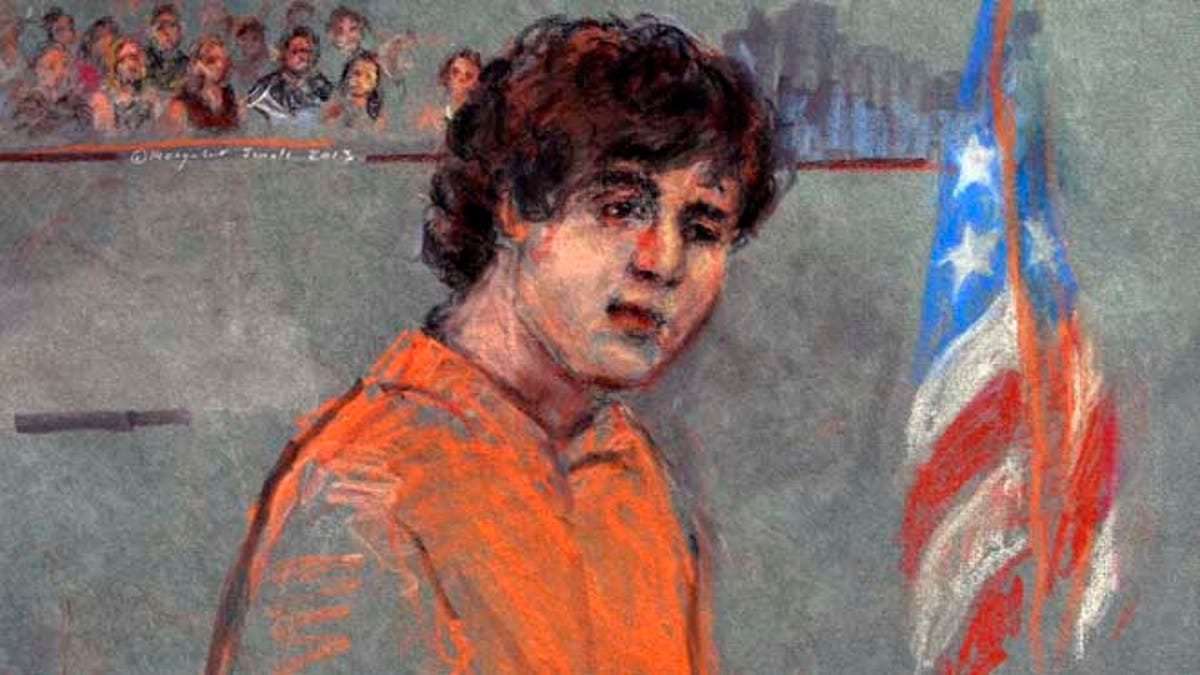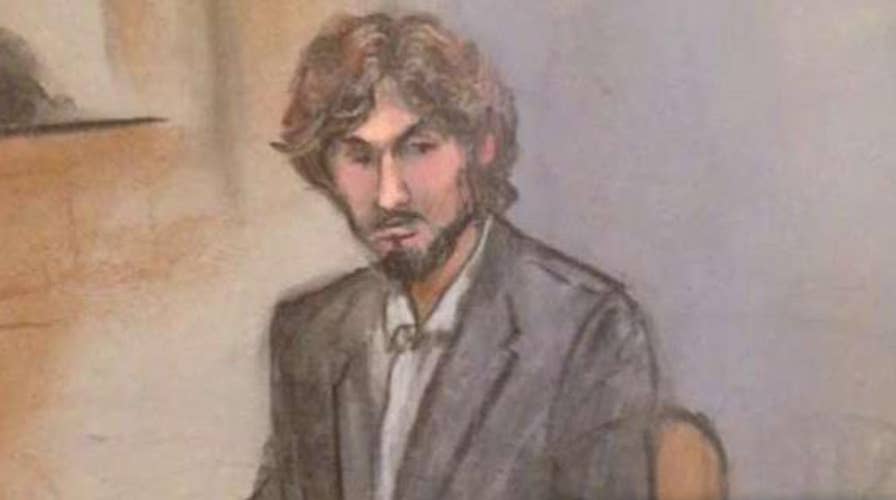Dzhokhar Tsarnaev's attorneys asking for new trial
Tsarnaev was sentenced to death for his role in Boston Marathon bombing
Lawyers representing Boston Marathon bomber Dzhokhar Tsarnaev sought Tuesday to spare him from the death penalty, citing a Supreme Court ruling they say taints half of the charges of which he was convicted.
Tsarnaev, now 22, was sentenced to death in June after being convicted of working with his brother to plant pressure cooker bombs at the 2013 race's finish line in an attack that killed three and injured hundreds. But his attorneys say prosecutors were able to pile on more severe charges using a 1984 federal law that was partly invalidated by the high court this summer, and that without those enhanced charges, Tsarnaev may have gotten a more lenient sentence. They are pushing for a new penalty phase trial, and want it held outside of Boston.
"The loss of those convictions would mean that a penalty trial should be held as to all counts," attorney William Fick argued.

Courtroom sketch depicts Boston Marathon bombing suspect Dzhokhar Tsarnaev in federal court in Boston. (AP/Margaret Small)
Tsarnaev's attorneys argued some 15 of the 30 charges came under an enhanced sentencing policy they say was invalidated by a U.S. Supreme Court decision from earlier this year. In that case, Johnson vs. United States,the court ruled 8-1 held that the term "violent felony" as it applies to a 1984 law allowing for harsher prison terms in certain cases is unconstitutionally vague. The defense argued that the number and nature of those charges likely influenced jurors when they decided Tsarnaev deserved the death penalty.
A jury found Tsarnaev responsible for the three deaths, horrific injuries to hundreds of people and for the brutal ambush killing of an MIT police officer. At sentencing Tsarnaev confessed and apologized.
U.S. District Judge George O'Toole, who presided over the trial, agreed to hear arguments on the motion but only specifically related to the Supreme Court decision. In that case, the court determined a law related to tougher penalties for the use of explosives or firearms tied to a crime of violence was unconstitutional.
Fick took a narrow interpretation of the case and argued a "crime of violence" was not appropriate to some of the counts, including ones alleging conspiracy.
Former Assistant U.S. Attorney Andrew McCarthy, who prosecuted the terrorists who bombed the World Trade Center in 1993, said the Tsarnaev team is off-base in trying to apply the Johnson case. In that case, the Supreme Court had ruled "violent felony" was a vague term in certain instances, such as extortion, where violence may or may not be involved. Tsarnaev's use of a bomb left no gray area, he said.
"It is a frivolous argument," McCarthy told Fox News. "There is no such thing as "passive" deployment of a bomb, which is innately a destructive device."
Tsarnaev's team is also seeking to extend attorney-client privileges, arguing the legal process is still active and ongoing as they pursue appeals. Prosecutors have begun the process of seeking restitution from Tsarnaev but the efforts are viewed as largely symbolic. Tsarnaev remains at the Federal Supermax prison in Colorado and was not present at Tuesday's hearing.


